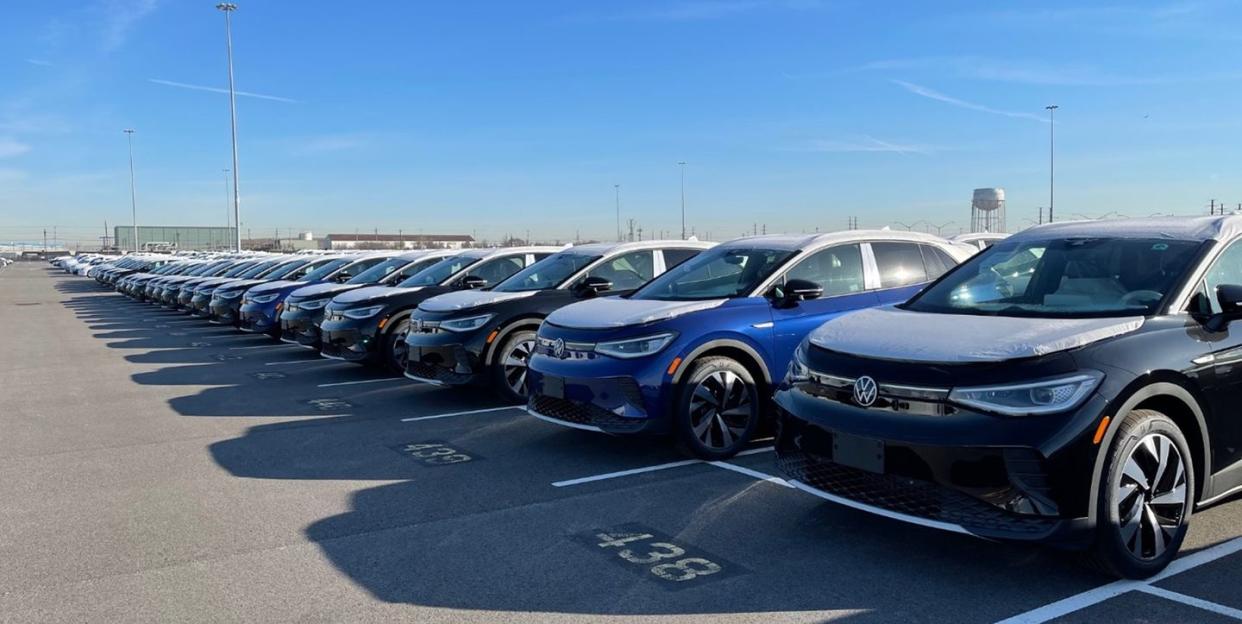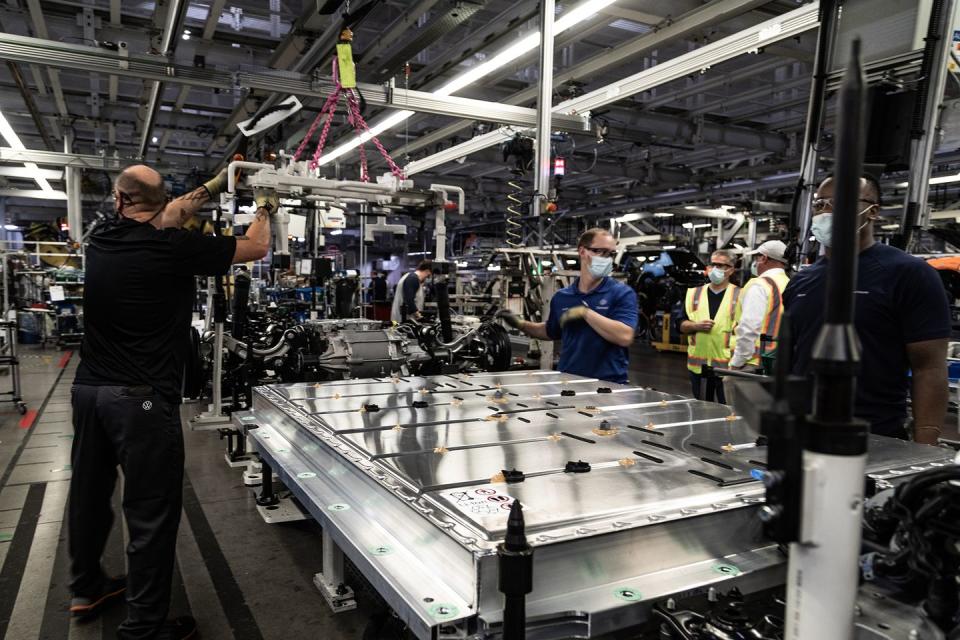VW Looks to Canada for EV Battery Raw Materials

VW and Canada will jointly investigate opportunities for the country to contribute to VW's regional and global battery supply chains.
The automaker seeks to rely on Canadian mining, refining, and processing in the longer term to shorten and simplify its current battery supply chains.
The sourcing of raw materials for batteries in Canada is expected to benefit VW just as several battery production hubs will come online in Europe in the near future.
With a battery raw material shortage looming on the horizon, Volkswagen has secured an agreement with Canada that will eventually affect the tax incentives that Americans receive following the purchase of EVs. The Wolfsburg-based automaker has signed a memorandum of understanding with Canada to investigate opportunities for the country to contribute to the automaker's regional and global battery supply chains.
Specifically, VW seeks to secure the supply of raw materials such as lithium, nickel, and cobalt for its own gigafactories in Europe, bypassing the sourcing of raw materials in other parts of the world in an effort to simplify and shorten the battery production process.
"As an automaker, we see compliance with stringent sustainability criteria as a top priority," said Thomas Schmall, Volkswagen Group Board of Management member for Technology. "For us, the availability of power from renewable sources and a raw materials sector with mines supplying materials conforming to the globally recognized environmental and social standards are crucially important. That is why Canada is an ideal partner for our e-mobility and battery strategy.”
The agreement comes just months after VW created a new, standalone company called PowerCo for all aspects of its battery business, from raw materials to recycling.

A crucial part of VW's plans for the near future include increasing cathode material production, which it hopes to do with Canadian suppliers acting as raw material refiners and processors. VW's plans with Canada seek to localize the mining and processing of raw materials, which at the moment take place in Africa and China, introducing transportation costs and other difficulties for vehicles that are assembled on a third continent.
Volkswagen and other automakers are now scrambling to secure raw materials for a future in which a much greater percentage of vehicles are battery-electric, and in which battery recycling will also play a major role in the supply chain.
The US tax incentive implications come into play when the newly implemented EV incentives begin to reward automakers that source battery components in North America.
"We’re committed to bringing electric mobility to consumers and communities in North America. Today’s agreement between the Volkswagen Group and the Government of Canada will enable us to work closely with local suppliers and expand our capabilities," said Pablo Di Si, incoming president and CEO of Volkswagen Group of America. "We continue to invest in electrification with plans to launch more than 25 battery-electric vehicles planned by 2030. A broad-based supply of raw materials from across the region will be key to support our ambitious growth plans."


